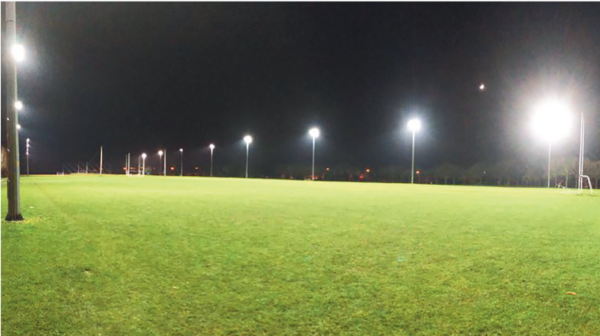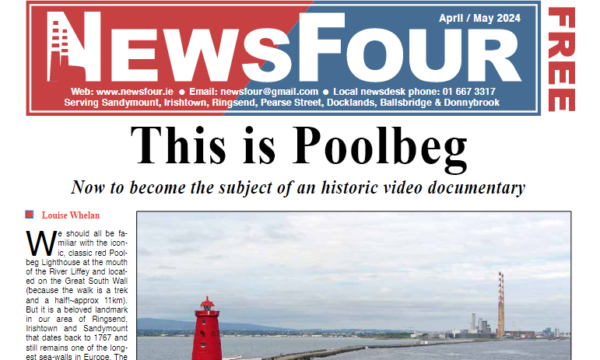
Felix O’Regan
As with most sports clubs, all the focus in recent times at Clanna Gael Fontenoy has been on non-playing/training activities. This has presented a major challenge to players, coaches, parents and club officials alike. However, it’s a challenge that all have taken on with gusto and no little success.
One thing the pandemic has not deterred is the club’s focus on the impact of climate change – how we can better utilise and conserve energy and reduce our carbon emissions. If anything, there’s been a redoubling of focus on this, conscious especially of our location beside the sea with two sand-based pitches and the potential threats posed as a result. This focus is succinctly captured by club Chairman, Brian Delany: “In just a couple of years the club has reduced electricity consumption by 30%. By 2023 we aim to have reduced our carbon emissions to 30% of the 2018 levels. This is a win win situation: positive for
our costs, good for our environment.”
Progress to date has been delivered through partnering with Ringsend Irishtown Sustainable Energy Community (www.risec.ie )as part of our programme of environmental initiatives and our journey to a sustainable and near zero carbon future. The first step on this journey to energy conservation was to carry out an energy audit of the club. Part funding was then obtained from the Sustainable Energy Authority of Ireland (www.seai.ie ) for the installation of energy efficient LED lights in the clubhouse, floodlights on the main pitch in Sean Moore Park, as well as the installation of solar PV panels.
Once again in partnership with RISEC and with the welcome support of an SEAI Community grant, it is planned to further reduce energy consumption and related costs and carbon emissions to 30% of 2018 levels by 2023 through the installation of smart controls and systems. The club is also getting District Heating Ready and plans to connect to the Dublin District Heating Scheme via the bordering Poolbeg Strategic Development Zone (SDZ) development and to work towards carbon neutrality by 2025.
Lockdown lessons
Creativity has come to the fore big time with our coaches and players finding new ways of both staying in touch with one another and staying in shape – zoom meetings, webinars, etc. While all teams have found inventive ways of doing this, our U13 girls really showed the way. They utilised virtual challenges for their physical and mental benefit and in the process generated welcome funds for The Light House in Pearse Street (www.dcmlive.ie/the-light-house ). Our U11 girls benefited greatly from advice on nutrition and hydration provided by Nutrikate’s Lisa Murphy who has herself worked with the Dublin Ladies All-Ireland winning football team and Ireland international basketball teams. A number of our boys’ and adult teams gleaned very useful lessons and tips which were kindly shared with them by some of our sporting stars; including Dublin footballers Dean Rock, John Small and Jason Sherlock, Galway hurler Joe Canning and international athlete David Gillick.
Though provided in the context of Gaelic sport, much of the advice provided has a relevance for us all. For example, John Small stressed the importance of keeping in touch with one another even if this is not physically possible through what he termed a ‘buddy system’. Don’t hesitate to call or text someone for a chat, he stated; and, if you think anyone you know might benefit from a check in, don’t be afraid to do it.
Joe Canning honed in on how important it is to keep going and never stop trying. Failure can be a good thing, he said; if you don’t fail you don’t learn. In a related vein, Dean Rock’s mantra was practice, practice, practice. His unwavering focus on this no doubt accounts for his reliability as a free taker: who can forget his scoring the winning point from a free in the 2017 All-Ireland final?
David Gillick highlighted the importance of taking ownership and responsibility of our situation as far as this is possible. And that also means being open to constructive criticism from others: “Criticism is hard to take; it hurts because it’s personal. But it’s a learning curve. You need to take it on the chin and take it on board.” Now that’s advice we may not like hearing but that certainly doesn’t mean it’s not sound!



